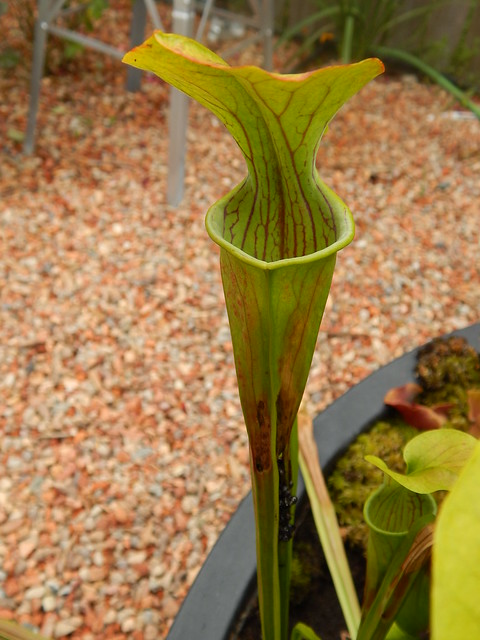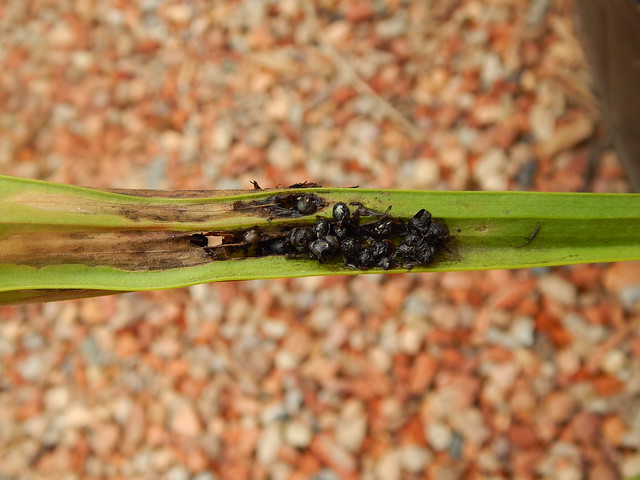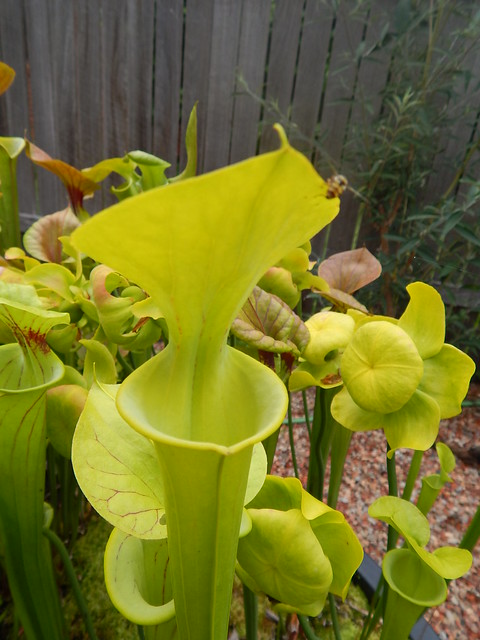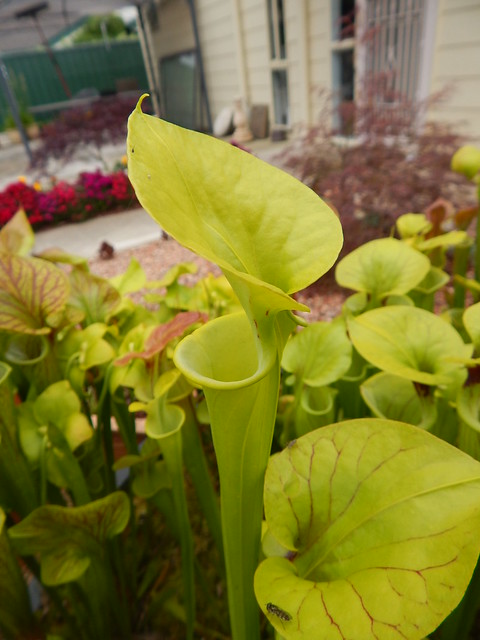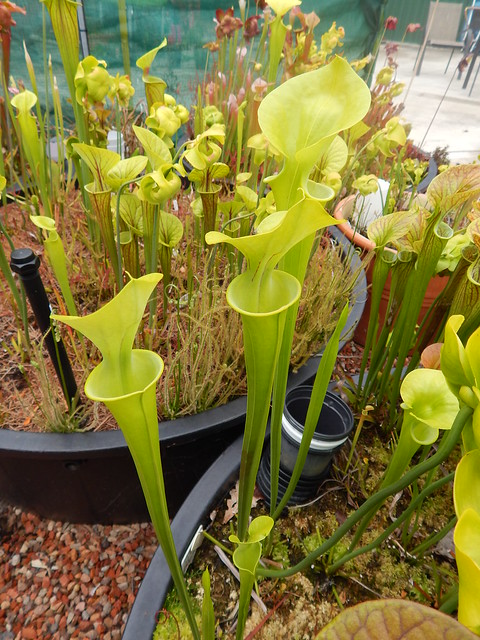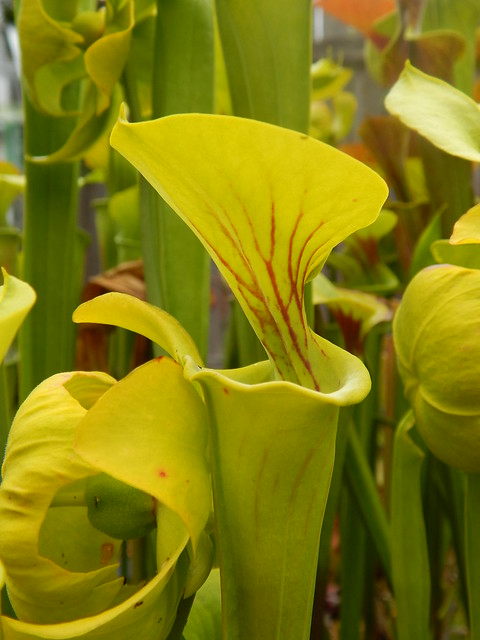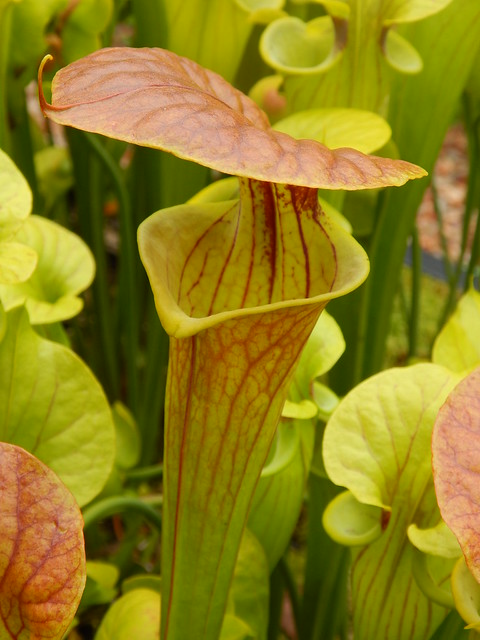This season is proving to be absolutely fantastic for the Sarracenia! And its not just me who thinks so: fellow Canberra-region grower Owen is also reporting it to be a great season so far. The Sarracenia flava are going absolutely crazy producing beautifully coloured pitchers that are well shaped because winds were not so bad, meaning fewer pitchers desiccating before they had fully opened.
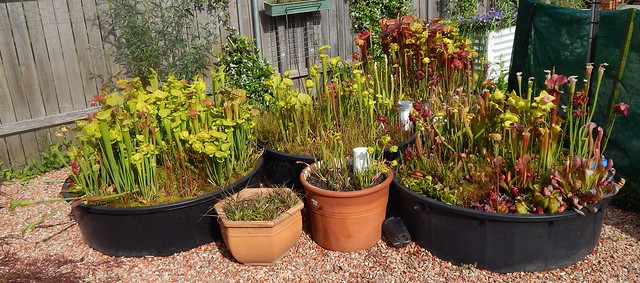
So, here’s some photos to show how the plants are doing. This week, we’ll start with the veined and coppertop flava bog, which is the one at left:
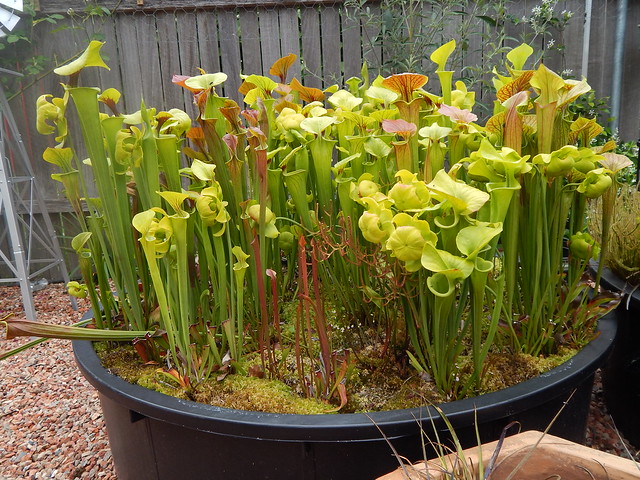
Its pretty packed in there – I may have overplanted it. Time will tell, of course…
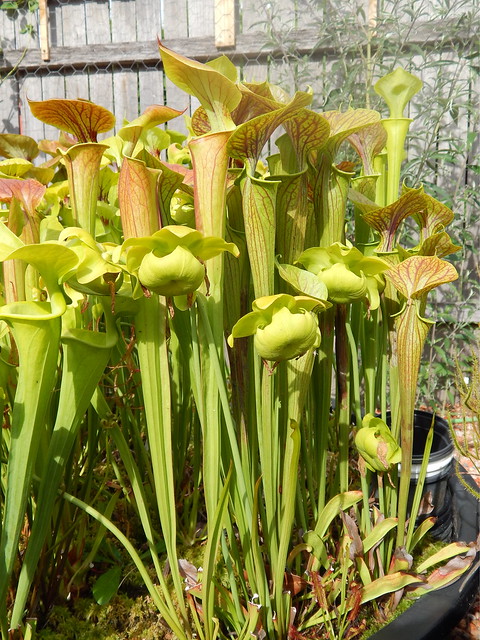
A mass of S. flava var. ornata pitchers, with a couple of photobombing S. flava var. cuprea ‘Gotcha! Heavy vein’ and flava var. maxima at front.
Sarracenia oreophila is adapted to waste no time in spring – it lives in areas where the spring rains are fairly brief. They pack all their energy into a burst of simultaneous growth and flowering, produce some phyllodes and then sit patiently for the following year. They do this irrespective of how wet conditions remain. Being among the first pitchers open mean they are already full – their pitchers start to discolour due to the heavy prey load (I call this indigestion!) and can even burst open like these pitchers did if the load is especially heavy.
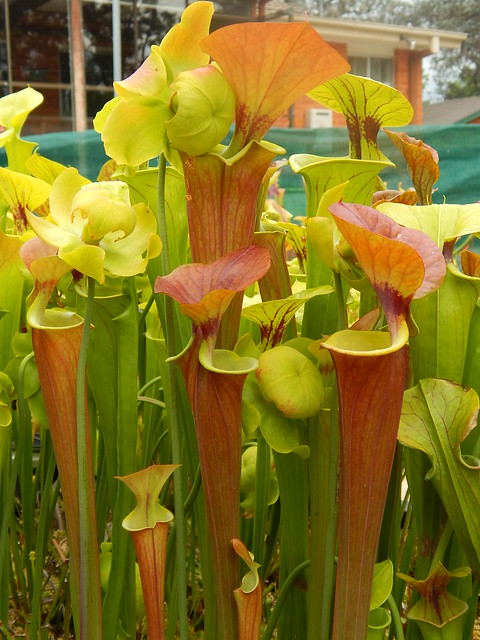
Front and centre of this garden is S. flava var. atropurpurea ‘FRT 1-5’, one of David Martin’s red flava. It can annoyingly act like a coppertop some years or fill in solidly red like this year.
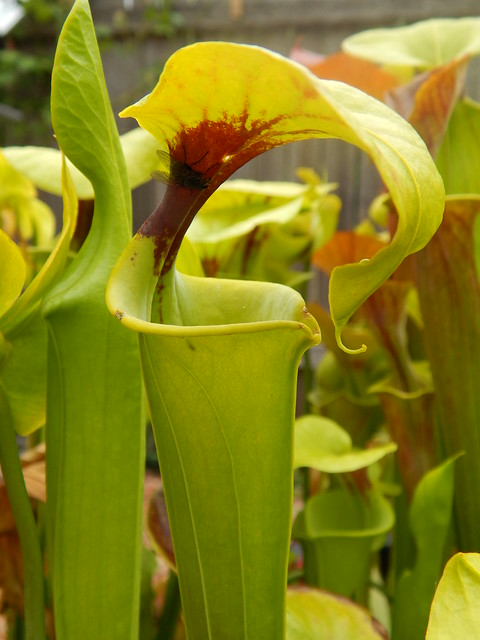
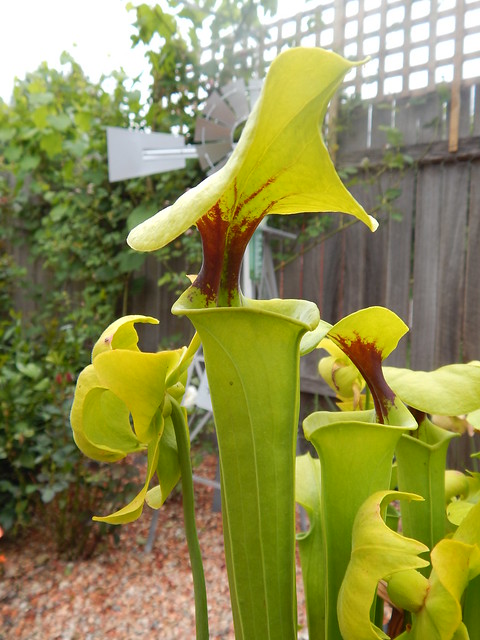
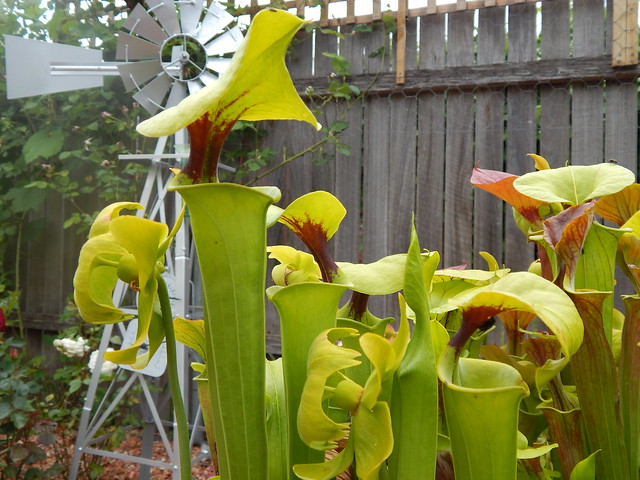
This either is or is not a flava var. rugelli (cut throat) depending on how you define the form (ie. veins or no veins). Nonetheless, it is a very spectacular plant for how tight and solidly red its throat is.
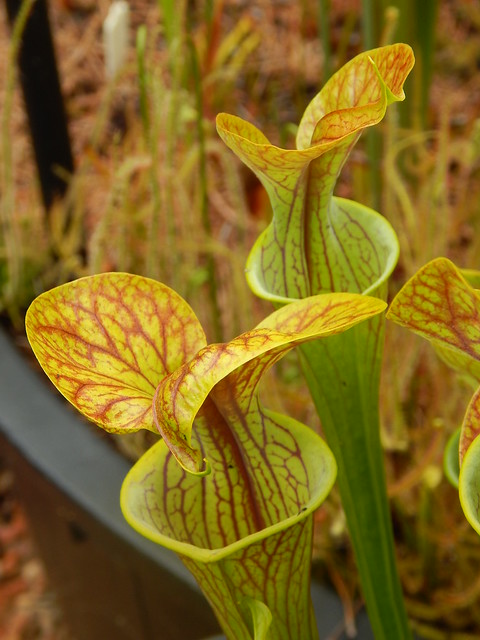
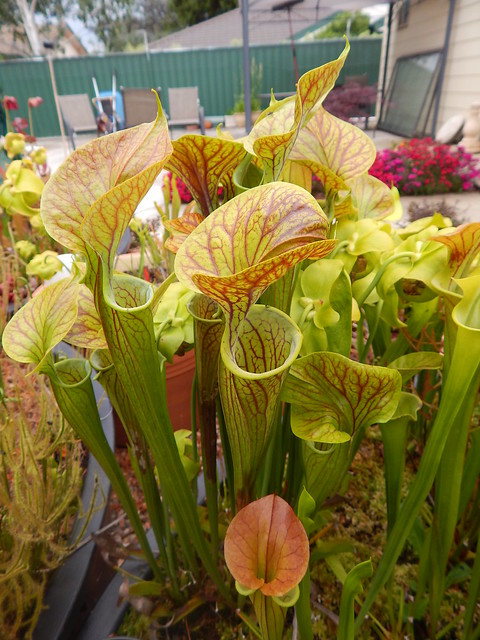
More flava var. ornata, or flava var. ornata x oreophila if you are in the VCPS… its amazing how taxonomic interpretation varies between states! But I sincerely think this is a different clone, as the VCPS clone grew differently when I tried it.
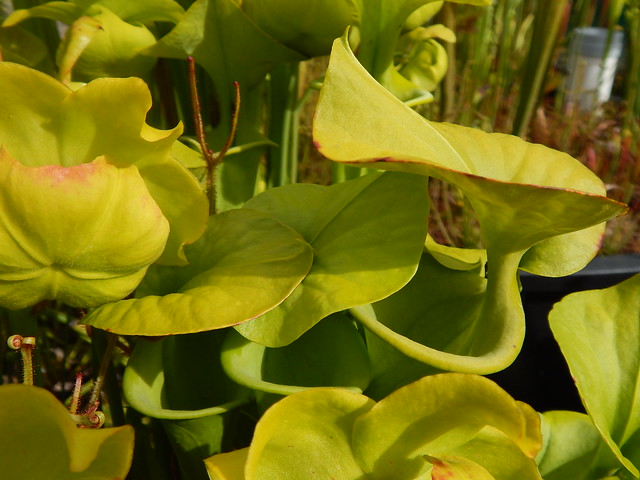
Some canoodling S. flava var. maxima…
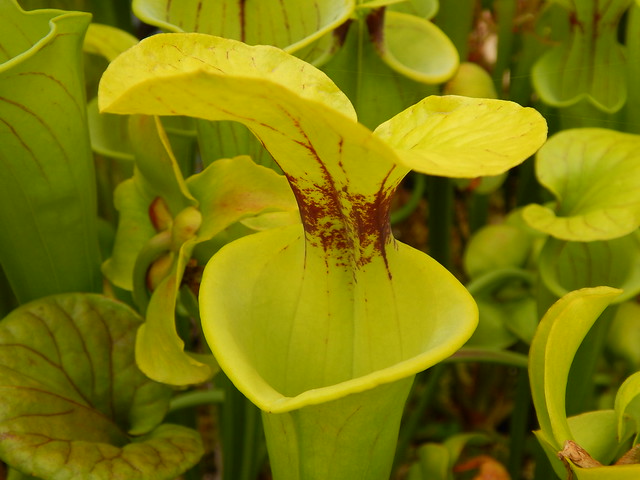
And a plant that Helmut Kibelis imported as flava “Slack’s Maxima” in the 1980s. It produces only 1-2 pitchers a year and gets really very floppy after being open for a few weeks. I tried planting it right in the middle of the bog in hope that the surrounding pitchers would keep it upright. But there is always one pitcher that manages to find a gap to fall through…
You could be mistaken if you took this plant for another var. maxima. But its not. This var. flava has tiny amounts of red venation if it gets full sun. It can also get really, really tall. Hence why I have dubbed it ’Helmut’s giant’, in honour of Helmut Kibelis who seems to be the originator of it.
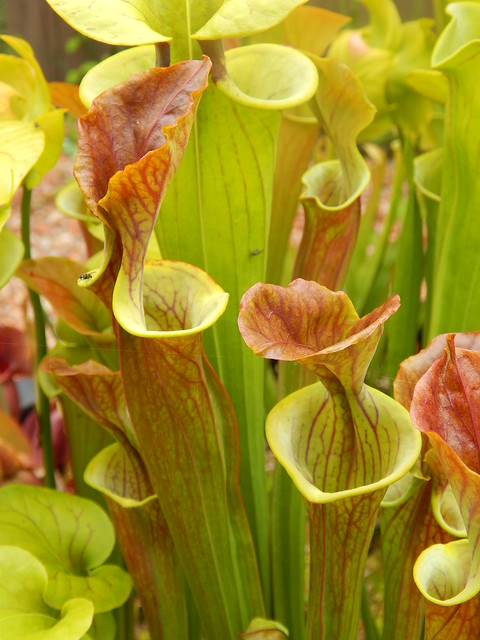
This weird looking plant is an annoying one that fits between the two camps that are flava var. cuprea and flava var atropurpurea. It can be very red when it first opens, but then fades to being heavy veined. It came up in a batch of seed germinated by John Creevey, and he gave me a piece of it in 2010. It always produces venation that is really swollen (it looks like it has high blood pressure!), and the very erect lid.
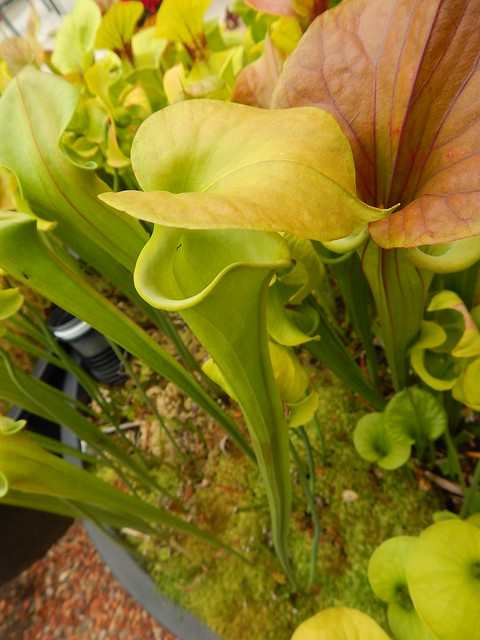
I was given this plant by Ron Abernethy as a flava var. maxima (I got all my maxima from Ron, as no-one in NSW was growing real maxima when I did not have any). It produces one one or two pitchers a year, and they always have the floppy lid. In my experience, they always produce a faint, washed out but persistent copper lid.
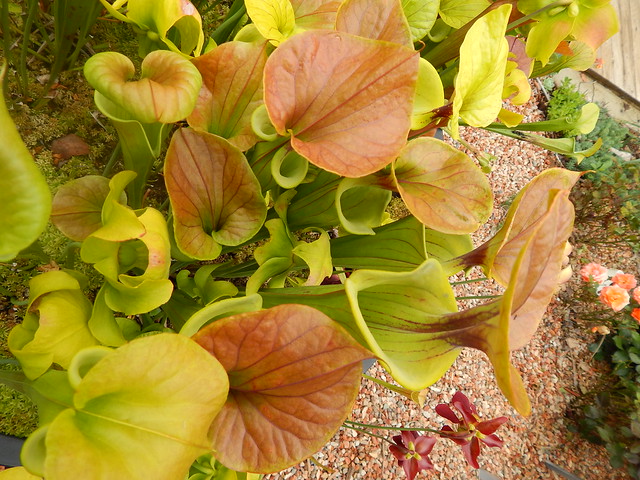
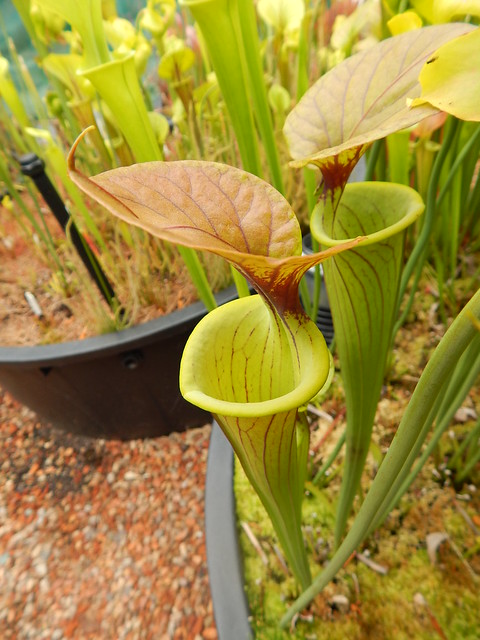
Another David Martin flava, this is flava var. cuprea ‘F1’. It was his first plant, and 40 years on, its still powering ahead.
This plant is not particularly good at pitcher production, or very large for that matter. I grow it because I brought it at the 2009 ICPS conference at the Sydney botanic gardens. It was an RSBG stock plant that Greg Bourke originally donated to them. It was also one of the first plants I got when I set about getting my collection together in 2009.
And to close, this fine and heavy veined var. cuprea is from Gotcha! Plants. It can get very big, but it is currently re-grouping after last year’s move into the bog garden. It does tend to sulk for a while after being repotted.
Part 2 will be online soon – it will cover the hybrid and new bog gardens.
